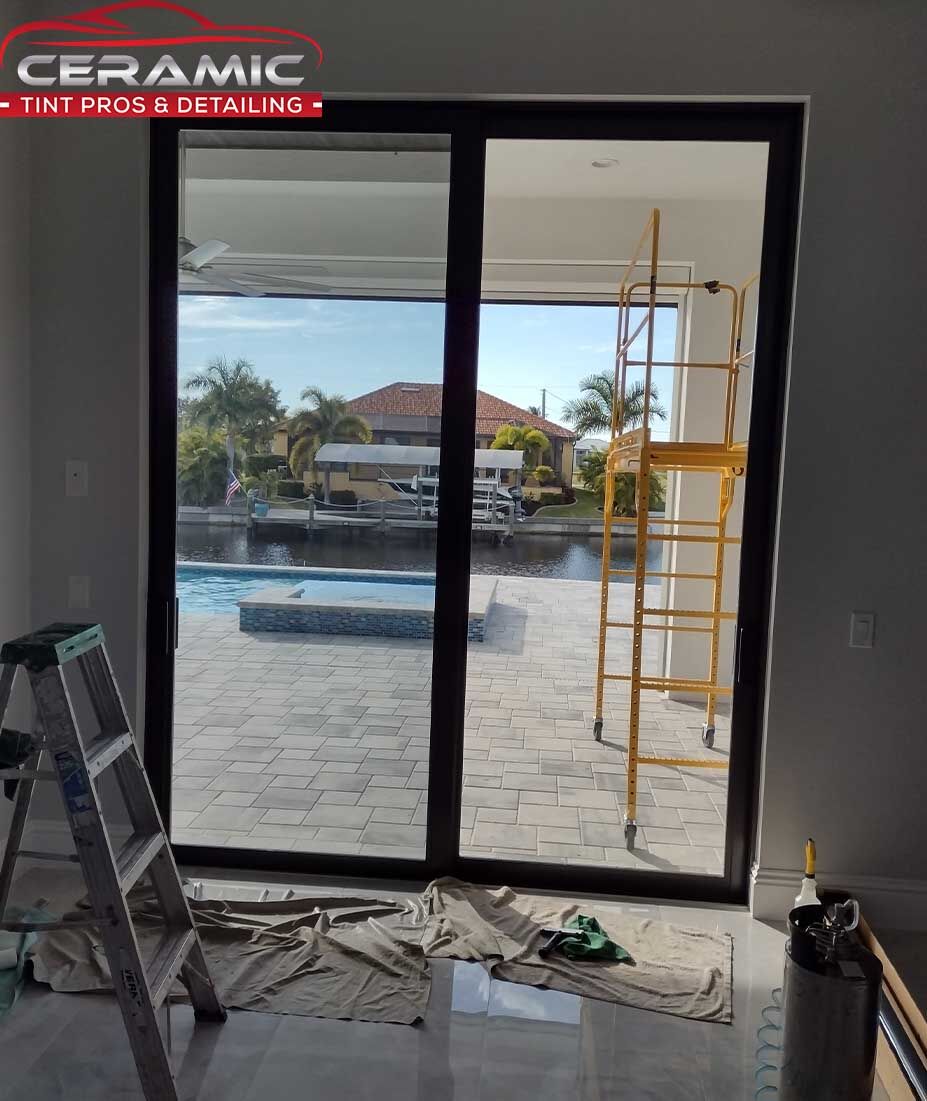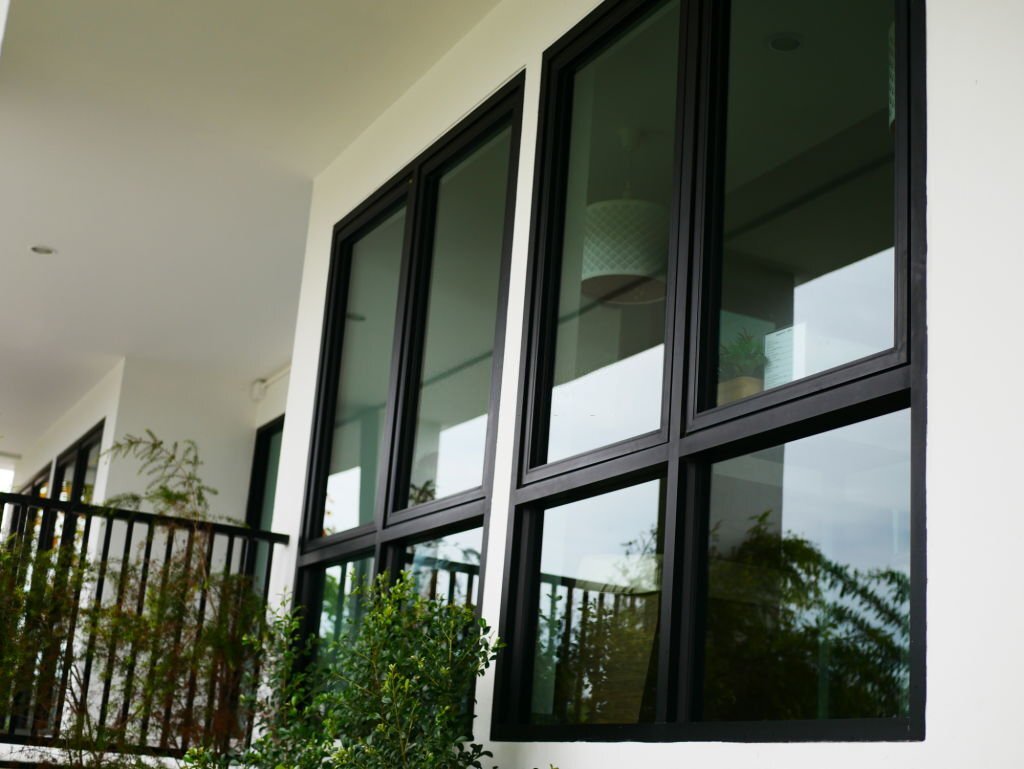Upgrade Your Home with Specialist Residential Window Tint Services
Upgrade Your Home with Specialist Residential Window Tint Services
Blog Article
Exactly How Residential Window Tinting Enhances Your Home's Power Performance
Residential home window tinting provides an engaging solution for home owners looking for to enhance energy performance within their space. By using specialized movies to windows, it efficiently minimizes warmth transfer, therefore stabilizing interior temperatures and minimizing the need for extreme heating or cooling. This not only cuts energy intake however likewise gives a much more comfortable environment by reducing glare. Understanding the nuances of how tinting works and selecting the appropriate type for your home can be crucial. Strangely enough, what elements should one think about prior to making this financial investment?
Recognizing Window Tinting
Comprehending window tinting is necessary for homeowners looking for to boost both convenience and energy efficiency in their space. Residential Window Tint. Home window tinting entails the application of a slim film to the interior or exterior surface area of glass windows. This film can significantly modulate the amount of sunlight and heat that gets in a home, therefore affecting interior environment problems
There are various sorts of home window tinting movies readily available, each with unique residential properties. For example, dyed movies absorb solar energy, while reflective films deflect it away from the glass surface. Ceramic films offer an equilibrium of presence and warm rejection, making them a popular choice amongst home owners. The effectiveness of window tinting is often gauged by its Visible Light Transmission (VLT) percent, which suggests just how much light can travel through the movie.
Benefits of Energy Performance
Home window tinting not just enhances visual appeals yet additionally plays a substantial role in improving energy performance within residential spaces. By decreasing heat transfer through home windows, colored films produce a much more steady interior climate, which can result in considerable decreases in power consumption for cooling and heating. This energy performance equates into lower energy costs, giving property owners with significant long-lasting savings.

In addition, home window tinting improves the comfort of living spaces. By lessening glow and blocking damaging UV rays, colored windows create an even more positive environment, which can result in boosted health for passengers. The security against UV rays additionally assists preserve furnishings and floor covering from fading, contributing to the durability of household items.
Exactly How Tinting Works
Tinting films operate via a combination of innovative products and technologies designed to control the amount of solar power getting in a home. Primarily made up of polyester, these movies frequently incorporate metallic or ceramic particles that reflect and take in heat. This double ability allows them to significantly reduce the i loved this penetration of ultraviolet (UV) rays and infrared radiation while permitting visible light to pass through.
The performance of window tinting is measured by its solar warmth gain coefficient (SHGC), which suggests how much solar power is transferred through the window. Reduced SHGC values are more effective as they signify higher heat rejection. Furthermore, window colors can include a range of tones, permitting homeowners to customize their visual preferences while improving energy efficiency.
Moreover, these movies function as an obstacle, preventing warm loss throughout cooler months by reflecting interior heat back into the home. This thermal insulation impact enhances the cooling benefits acquired during warmer months, adding to a balanced indoor climate year-round. By managing solar energy efficiently, domestic window tinting not only boosts convenience however also plays an essential function in minimizing energy usage and lowering utility bills.
Choosing the Right Tint

There are different kinds of home window movies offered, including colored, metalized, and ceramic. Ceramic movies provide excellent heat control without endangering exposure and are highly sturdy, making them a prominent option.
Visible light transmission (VLT) is one more crucial variable, as it indicates the quantity of all-natural light that can pass with the tinted glass. Homeowners need to select a color with a VLT that enhances their illumination preferences while still providing adequate glow reduction.
Furthermore, examining the solar warm gain coefficient (SHGC) can help identify exactly how well a color can obstruct warm from sunshine. A reduced SHGC shows far better warmth control, inevitably boosting power performance.
Setup and Maintenance Tips
Proper installment and maintenance are essential components in taking full advantage of the benefits of residential window tinting. Specialists also use specialized strategies and tools, which can enhance the longevity and effectiveness of the tint.
Complying with installment, upkeep is vital to extend the life of the home window film. It is suggested to wait at the very least 30 days prior to cleansing the colored windows to permit the sticky to treat completely.
Additionally, routine inspections are useful. Look for any peeling or bubbling, which could suggest incorrect setup or put on in time - Residential Window Tint. Addressing these concerns promptly can prevent more damage and maintain energy effectiveness. By sticking to these setup and upkeep tips, property owners can ensure their home window tinting continues to give substantial power financial savings and convenience for years to come.
Conclusion
In verdict, domestic home window tinting serves as an efficient service for improving energy performance within homes. By minimizing warmth transfer and blocking hazardous UV rays, window films contribute to decrease energy usage and enhanced interior comfort.
Home window tinting involves the application of a slim movie to the interior or exterior surface area of glass windows. By minimizing heat transfer via windows, tinted movies develop a more steady interior environment, which can lead to significant decreases in power his comment is here consumption for heating go to this site and cooling.The performance of window tinting is measured by its solar warm gain coefficient (SHGC), which shows how much solar power is transferred via the window. By handling solar power properly, property home window tinting not only enhances comfort however likewise plays an essential role in decreasing energy usage and decreasing energy costs.
By reducing heat transfer and blocking dangerous UV rays, home window movies add to decrease power intake and boosted interior convenience.
Report this page